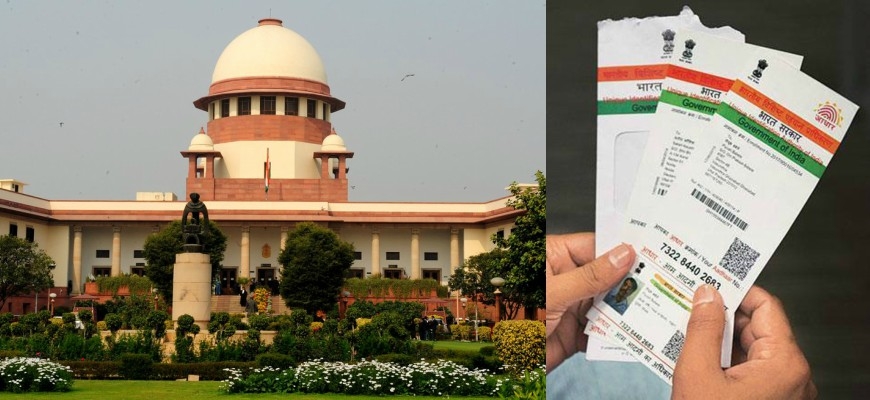What's wrong with One Nation One Identity: SC asks Mamata govt
New Delhi, February 8: During a hearing on Aadhaar case, the Supreme Court asked the West Bengal government as to what is so wrong with having 'One Nation One Identity' with the Centre making Aadhaar mandatory.

"Yes, we all are citizens of this country and Indianness has nothing to do with this kind of identity," it told the bench which also comprised justices A K Sikri, A M Khanwilkar, D Y Chandrachud and Ashok Bhushan.
The court questioned senior advocate Kapil Sibal, appearing for the West Bengal government, on what he thought about the concept of 'one-nation, one-identity'.
"We are proud Indians and are passionately Indians, but everything is wrong with Aadhaar. Indianness has nothing to do with identity. Let us not go into this debate as it is more political than legal. We are more than this Aadhaar. That's all," Sibal responded.
The senior advocate, who resumed arguements, read out the Aadhaar Act to say that it was a wrongly drafted law with respect to 'alternatives', because there was no scope of authentication of identity of an individual except Aadhaar.
The Aadhaar Act deals with no scope of other alternatives to establish identity of an individual, Sibal said, adding banks say that they do not want any other information or card and ask only for Aadhaar number.
Giving an illustration, he said the United Kingdom, which intially started a biometric authentication mechanism, scrapped it because the system was vulnerable.
"I am not saying that the State will misuse my Aadhaar information, but how does this Aadhaar make everyone vulnerable? This vulnerability is where the violation of my right comes in," he said.
Sibal argued that his first submission is about the centralisation of data and said that Unique Identification Authority of India (UIDAI) claims that it is secure because it is federated -- that is the database is broken and stored in multiple locations.
The bench said that theoratically every centralised database can be hacked, but this does not necessarily mean that it is vulnerable.
"It is acknowledgement of the fact that you need to take extra care and safeguards should be there to protect it," Justice Chandrachud said.
The West Bengal government has attacked the scheme on grounds including that it would lead to 'one-nation, one-identity'. The apex court had been hearing petitions that questioned collection of private information by UIDAI.